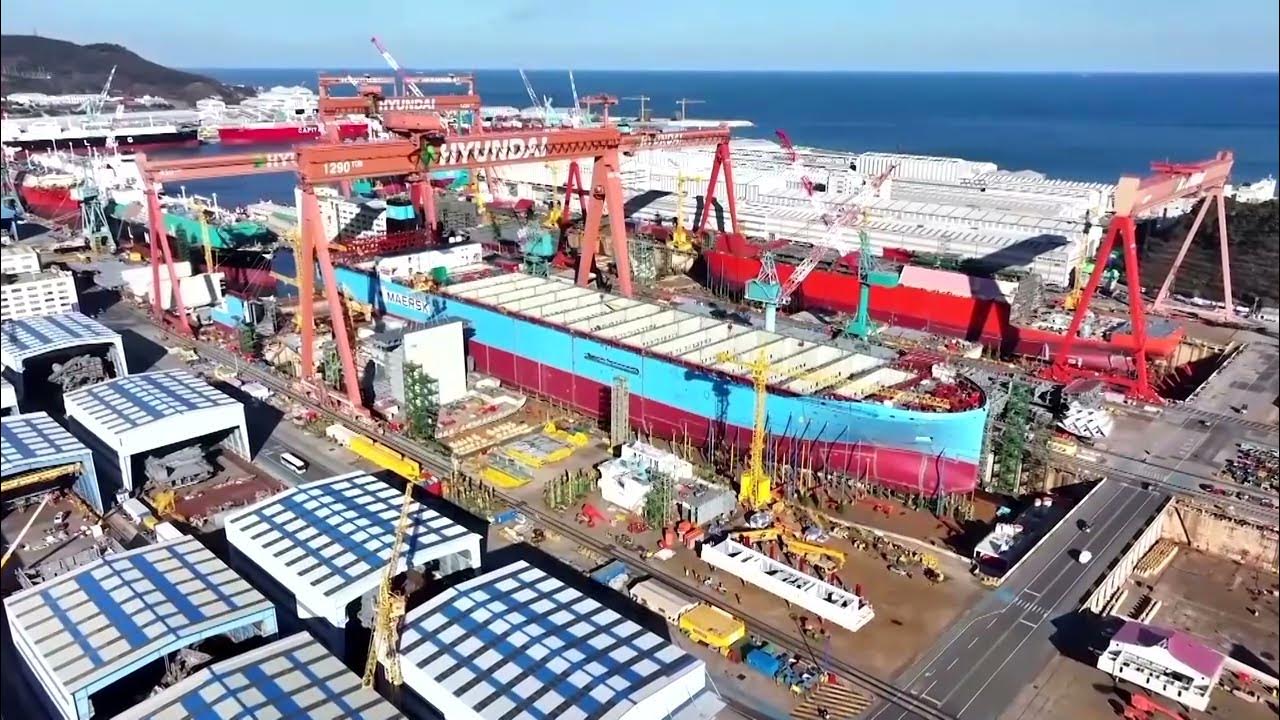Ministries debate shipbuilding jurisdiction amid Korea-U.S. negotiations
Power Struggle Erupts Over Shipbuilding Jurisdiction

A contentious power struggle is unfolding between South Korea’s Ministry of Trade, Industry and Energy and the Ministry of Oceans and Fisheries regarding the oversight of the shipbuilding industry. The debate centers on whether the shipbuilding sector should be transferred from the Ministry of Trade to the Ministry of Oceans, particularly in light of impending restructuring plans from the Lee Jae-myung administration. Both ministries present compelling arguments, with the Ministry of Oceans advocating for comprehensive oversight, while the Ministry of Trade emphasizes its role in formulating trade strategies and technological advancements.
Ministries Clash Over Shipbuilding Oversight
The Ministry of Oceans and Fisheries asserts that it is better positioned to manage the shipbuilding industry due to its comprehensive understanding of the entire shipbuilding process. The ministry argues that its closer ties to the field will enhance policy efficiency. Former Minister Jeon Jae-soo has been vocal about the need for the shipbuilding and marine plant division to be under the Ministry of Oceans, claiming that such a transfer could yield significantly better results. He stated, “If the Ministry of Oceans and Fisheries takes on the shipbuilding industry, it could yield results 1,000 to 10,000 times better.”
Officials from the Ministry of Oceans emphasize that shipbuilding encompasses more than just construction; it involves inspection, operation, and recycling. They argue that the current division of responsibilities between the two ministries is inefficient. The Ministry of Oceans is already tasked with international maritime responses and maintaining technical standards, and it boasts a workforce skilled in navigation and shipbuilding policy. As global standards evolve, particularly regarding eco-friendliness and autonomous navigation, the ministry believes it is essential to handle all aspects of shipbuilding, from legal adjustments to business guidance.
Conversely, the Ministry of Trade maintains that its oversight is crucial for the shipbuilding sector’s integration with related industries such as steel and machinery. Minister Kim Jeong-gwan has highlighted the importance of a unified approach to trade strategy, emphasizing that the current system allows for proactive policies and crisis responses. The Ministry of Trade also draws parallels with Japan’s shipbuilding decline, arguing that separating the industry from trade oversight could hinder competitiveness.
Calls for a Unified Approach to Shipbuilding Policy
Amidst the ongoing debate, there is a growing consensus among industry insiders that the Ministry of Trade’s position is more compelling, especially given the current uncertainties in the global trade environment. A government official remarked that while the Ministry of Oceans has valid points, the existing system’s integration with trade is vital for maintaining strong negotiations with the United States.
Panama Intensifies Crackdown on Sanctioned Vessels with Registry Cancellations
Some experts suggest that rather than shifting jurisdiction between ministries, a dedicated control tower for shipbuilding should be established to facilitate cooperation across government departments. Yang Jong-seo, chief researcher at The Export-Import Bank of Korea’s Overseas Economic Research Institute, proposed that Korea could benefit from a centralized approach similar to the United States’ maritime security advisor, which would enable more finely tuned policies.
As the Lee Jae-myung administration prepares to announce its restructuring plans, the outcome of this jurisdictional dispute could have significant implications for the future of South Korea’s shipbuilding industry and its role in international trade negotiations.
